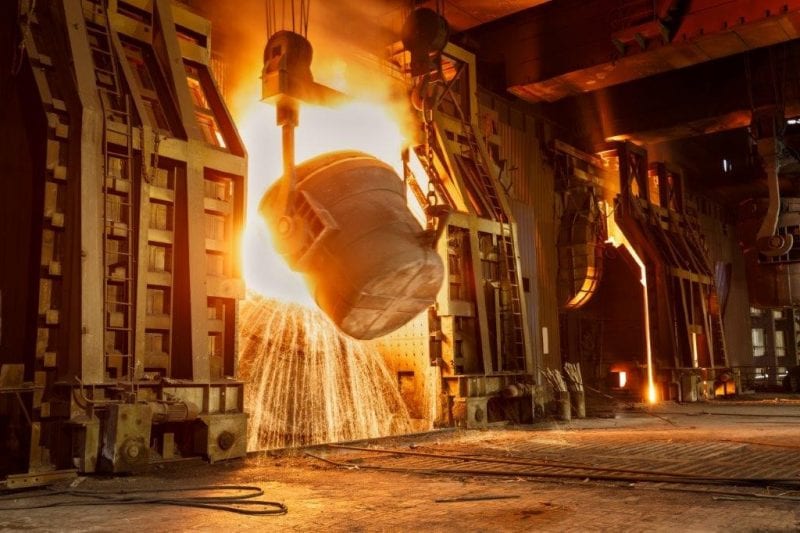
Consulting Playbook: How to Organize for International Growth
Welcome to our series, the Consulting Playbook, a collection of posts designed to offer insights into how businesses and their executives can utilize consulting as a strategic lever to boost performance. Each Consulting Playbook post is broken down into a few elements: Case Study, Additional Information regarding the technical application, and Additional Links related to the topic.
Organizing for International Growth
As it aimed to penetrate new markets in Asia and North America, a Global Industrial Company presently in South America and Europe, starting to plan acquisitions.
The strategy included consolidation of existing business and resources in existing geographies, while enabling expansion into new markets with higher growth potential.
The current Management Committee needed to be rearranged and position for its new role as boundaries between the Management Committee and Units’ Heads were at times confusing. Managerial roles and responsibilities had to be redefined. The corporate organization was not flexible enough to move ahead with the new business model. The New Markets Expansion required fresh partnerships and updated acquisitions.
The present functional design no longer matched the new potential growth the company was headed to. The CEO decided to engage the support of a consulting firm.
Analyzing the Best Model Moving Forward
- Aligning the leadership team on the key principles for the new organization. Those would serve as design criteria for selecting the best option.
- Assessment of all advantages and drawbacks was performed, aimed at improving the group organization design and governing principles. New possibilities and options were identified.
- Purely regional model was strong for seizing growth opportunities but was not enabling efficiency improvements required by the industry
- Purely sectorial model was enabling specialization and move towards customized high value solutions but was not the most reactive from a commercial standpoint
- The best options were specified for further examination by the Group Management Committee which was expected to make decisions on A/ Organization, B/ Governance Principles and C/Roadmap of the main steps in implementation
- The company decided to move towards a hybrid model enabling the best of both worlds at the cost of some added complexity
The New Scheme Successfully Positioned the Organization on the Path to Market Expansion
The new organization was poised for growth internationally. The current company could quickly evolve and position itself for new markets acquisition. The right balance between the business and the regional organization was established.
New organization’s structure was created with new management team in place. Key executives were picked & clearly defined responsibilities for each person were set. Next stage agenda has been outlined, to lead the new operational governance model.
Additional Information
How New Technology is Impacting Productivity in the Steel Industry?
With the development of new technologies, the impact on the productivity in the Steel Industry has been tremendous. Technological innovation is riding the wave through the industry. Market share of mini-mills has increased significantly, also plants that were not sufficiently vertically integrated were outperformed by competition, and output has been reallocated to more innovative produces.
The Industry Productivity has increased due to a few major factors:
- The average plant becomes more efficient
- A shift in resources from less efficient plants to more productive ones is taking place too
- The arrival of the new and more efficient production process – the mini-mill, makes every plant more efficient
The face of the industry is changing, both on a geographical level and economic level. As a result of implemented changes, the prices and profits have decreased in the past few years. Productivity growth today is mainly driven by process innovation rather than new goods.
The Steel Industry according to latest stats, is still one of the fastest growing manufacturing industries behind only computer software and equipment industries.
The trends of the past 30-40 years in the US, shows that the rapid productivity growth and consequent decline in employment, were predominantly connected to the mini-mill. Contrary to some beliefs, globalization or steady drop in steel consumption did not cause that.
As a number of researches found out, the mini-mill outperformed the traditional steel plants, displaced the older technology (the vertically integrated type) and this way triggered reallocation of output, resulting in one third increase in productivity. This increase of productivity is entirely due to the new technology of the mini-mill.
It’s interesting to note the link between the lowered markups that fell by 50% in the last 40 years, and higher productivity led a consumer surplus of about $10B a year, an in-depth study on the topic was published in the American Economic Review in 2015, titled ‘Reallocation and Technology: Evidence from the US Steel Industry’ by Allan Collard-Wexler and Jan De Loecker.
For Further Reading –
– Outlook for the global steel market
– Steel Industry Stock Outlook – May 2016
– Steel Market Forecast 2015-2025
About The Consulting Playbook
Hélène Laffitte is the CEO of Consulting Quest, a Global Performance-Driven Consulting Platform and author of “Smart Consulting Sourcing”, a step by step guide to getting the best ROI from your consulting. With a blend of experience in Procurement and Consulting, Hélène is passionate about helping Companies create more value through Consulting.



